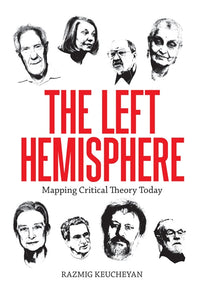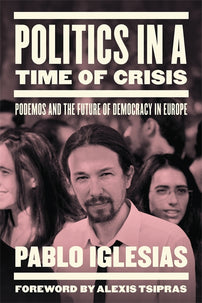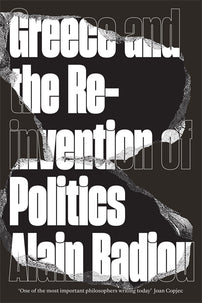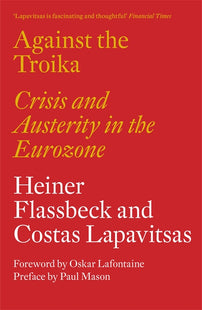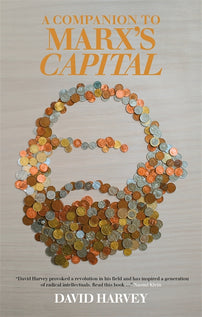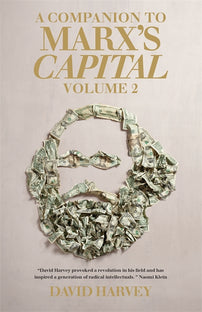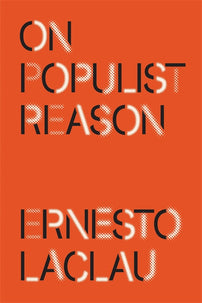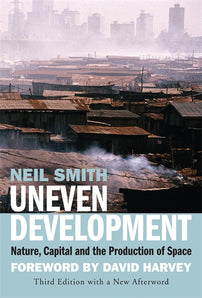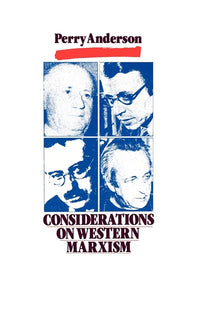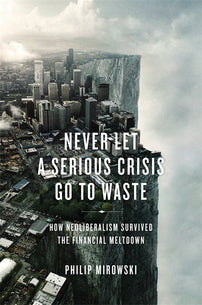Constructing a Common Language: A conversation with Razmig Keucheyan
Keucheyan discusses environmental inequality, the past and present of the workers' movement, populism, and the relationship between strategy and theory.

First published in Ballast. Translated by David Broder.
Our meeting is at the University, in the centre of Paris. Razmig Keucheyan has booked a room for our interview. “Back in the day, we would have been meeting at the local party HQ!," the sociologist quips. A militant in the Front de Gauche and a member of Ensemble, Keucheyan hardly fits the figure of the overbearing intellectual. He tells us that critique is never as effective as when it combines analysis with political strategy (and when the former is placed in service of the latter). In his recent book Nature is a Battlefield in particular, Keucheyan makes a bold use of environmental questions, which are a red thread running throughout his frontal attack on the impasses and contradictions of the radical Left. These questions have to do with the radical Left's relationship with the state and the European Union, with popular and social struggles, and with the outmoded slogans and collective identities that today need to be redefined. Over this free-flowing interview, we sketch out an alternative to how things are supposed to be.
We know what social inequality is, what inequalities between men and women are and indeed what racial inequalities are. But we do not hear much talk of environmental inequalities. Could you tell us more about this?
It is very simple: “environmental inequalities” are the inequalities in our relation to nature. Individuals and groups of individuals — classes, genders, “races," etc. — are not equal with one another with regard to the environment. Depending on what social categories we belong to, we suffer from pollution, natural disasters, or changes in biodiversity in very different ways. For example, where in the region surrounding Paris do we most often measure the highest peaks in pollution? In Seine-Saint-Denis — and particularly around the A1 motorway. This is the poorest département in metropolitan France, and also the one that takes in most recent immigrants. So as well as the inequalities that sociologists have traditionally studied, and which social movements have attacked (inequalities of income, gender, qualifications levels, etc.), we also find environmental inequalities. They have existed since the dawn of the modern age. But the environmental crisis that we have now run into aggravates these inequalities considerably.
The notion of environmental inequalities allows us to go against the dominant environmentalism, which conceives climate change as something that affects humanity as a whole in an indiscriminate way. For instance, if you read the texts of Nicolas Hulot, that is the kind of environmentalism that he is expressing. Yet this is not at all how things really are. If we want to understand the dynamics of the environmental crisis, then we need an analysis in terms of inequalities. And in this perspective, a Marxist approach is more relevant than ever. There is an analytical interest in the concept of environmental inequalities, but it is also of strategic importance. One of the key political questions of our moment is: how can we bring about a convergence between environmentalist movements and the left-wing heirs to the workers' movement, and especially the unions? As we know, the relations between the two are not always easy. Environmental inequalities can provide a way to think through this convergence. The language of inequalities is the DNA of the workers” movement, which arose in the nineteenth century in order to wage the fight against them. That is why adding in the environmental dimension and combining it with other ones makes it possible to construct a common language, and common political perspectives…
In your book you emphasise on one of the ways in which these inequalities play out: environmental racism. Why highlight this in particular?
Now more than ever, writing social science books involves asking yourself how you can capture the reader's attention. That is the role of notions like “environmental racism." This notion brings together two problematics that seem very remote from one another, namely the environmental crisis and racism, and relates to the fact that the victims of racism, in both global North and South, are also more frequently the victims of a damaged environment. For instance, think who the main victims were of Hurricane Katrina in New Orleans in 2005. It was Black people and the poor, because they live in the areas most prone to flooding, while Whites and the rich make their homes in the heights of the city. Where did France carry out its nuclear tests? First it was in the Algerian desert and then in Polynesia. And these tests have had a lasting health impact on the populations concerned, as well as the ecosystems there. Racism also includes a spatial and environmental dimension: it is not simply a matter of racist “opinions” or “prejudices."
In the debates after my book was published, people said to me: “Your examples of environmental racism are often from the English-speaking countries, what about France?” It is easy to find environmental racism in France: I just gave the example of nuclear tests. And here is another one. A statistical study published by the Journal of Environmental Planning and Management, shows that in France each extra percent of a city's population that was born abroad adds a 30 percent increase in the chance that a waste incinerator — which means pollution and damaging health consequences — will be sited there. So we more frequently tend to find these incinerators close to sites of recent immigration. That especially owes to the fact that the populations who find themselves there have a lesser capacity to mobilise against the incinerators being built there, or because the authorities prefer to protect well-off and/or white population groups from this type of environmental pollution. Environmental racism is not, then, a particularly American phenomenon. Of course, racism in the United States has its own historical particularities, just as it does in other national contexts and especially in France. But the recognition that there are national particularities in this regard should not lead us to forget that racism in general and environmental racism in particular result from capitalism's overall global dynamic: so they are present everywhere, in different forms. That is why the book turns to this question. I will add that for me, speaking of environmental racism does not at all mean neglecting the class dimension of social and environmental relations — quite the contrary. In the perspective that I try to elaborate, class, gender, “race” and environment are closely interlinked.
“Going back to nature” developed as a class experience: it provided a means for the upper classes to escape the city and its dirty and noisy industries. We find this same elitism in the first environmental protection organisations. They were dominated by the white and well-educated. Do you think that this situation has changed? We still have this same omnipresent image of the well-off middle-class environmentalist — often a lecturer, living in the city centre…
This “environmental elitism” — and here I am adopting the Black American sociologist Robert Bullard's expression — is not found everywhere. For example, in Latin America or in Asia environmentalist movements have historically been built around the question to basic natural resources. As such, their social base has always been more “of the people." The reason is that accessing these resources is an immediate question of survival, which implies that the construction of environmental problematics has a more pronounced class dimension in these regions. Even in Western countries, different conceptions of “nature” have always been in struggle with one another. The dominant conception, as you said, portrays nature as an entity external to social and class relations, a pure and untouched space where representatives of the upper layers can go to take a break from the “sound and fury” of capitalist civilisation. But ever since the origins of the modern era, nature has always been the object of forms of politicisation “from below." We need only remember Karl Marx's writings on the “theft of wood” or EP Thompson's writings on the Black Act. 1 Since the outset, the claim that nature stands external to the class struggle has been contested. I do not think that in the dominant environmentalist circles over recent years the interest in environmental inequalities has increased. For instance, we do see innovative experiences like the “Toxics tours” organized by activists in Seine-Saint-Denis. 2 These “environmentalist walks," the idea for which comes from the United States, seek to demonstrated that the main victims of pollution are also the poorest social categories. But unfortunately these experiences remain limited, and I have not seen representatives of mainstream environmentalism rushing along to participate…
We often criticise the environmentalist movement by pointing to the need for a convergence between social and environmental questions. But does the problem not also lie with the workers' movement, which has long been dominated by productivist thinking, and still is today? In your book you mention the AZF disaster, where after the explosion at the factory environmentalists and trade unionists found themselves on opposite sides. The former wanted to close it for good, whereas the latter fought to defend jobs…
Historians who have taken an interest in the links between environmentalism and trade unionism put qualifications on the evaluation that the workers' movement has been systematically productivist and thus always hermetically sealed-off from environmentalism. Nonetheless, it is clear that this was indeed a dominant trend over the twentieth century. There are many different factors explaining this attachment to productivism. First of all, the USSR's productivist model long prevailed across important sectors of the trade union movement, and not only those that belonged to the communist universe stricto sensu. Then there is the fact that the productivism that was at work during the Trente Glorieuses had positive consequences for a lot of people in terms of social and economic progress. We have to place ourselves in the postwar context and understand what the growth rates of this period could mean in terms of increasing living standards. In this perspective, it is easy to understand why there was a certain attachment to productivism and underestimation of what might be harmful about progress (or a certain version of progress). Finally, since the end of the Trente Glorieuses, the rise of mass unemployment has implied that environmental questions often fall to a secondary place in the hierarchy of trade-union concerns. That is precisely the reason why the jobs question must be central to environmental movements' own concerns. There are surprisingly few works on the link between the ecological transition and how the structure of employment should develop. 3
The ecological transition must necessarily lead to the degrowth and then the disappearance of polluting economic sectors, and thus to the disappearance of the jobs involved in them. Once we have recognised that, we should apply two principles: on the one hand, maintaining the incomes of the people concerned during the whole transitional period; and on the other hand, mass state investment in new “sustainable” jobs. It goes without saying that the unions must be in the front rank in “piloting” this transition, which must absolutely not be carried out “from above." The difficulty, of course, is that we live in austeritarian neoliberal states. These states have given up the financial means that would be necessary for implementing this ecological transition. That is why the critique of the neoliberal state is an urgent task for any environmentalist movement, for such a state is a barrier to any transition. Unfortunately, in a number of environmental movements, and even in radical ones, there is total lack of reflection on the state.
A lot of the solutions that are most in vogue in international organisations, as well as some NGOs, are inspired by market mechanisms for protecting the environment. Generally this means setting some price on nature, either through creating a carbon market or evaluating ecosystems' monetary value. You criticise this financialisation of nature. But is setting a price on the environment not just a way of forcing people to take its value into account?
There is nothing new about setting a price on nature. That has always existed under capitalism. What we call “raw materials” are natural resources that enter into the production of a commodity. Raw materials have a price, which is to say, they are traded on markets. Yet to my knowledge, setting a price on these resources has not thus far stopped them being over-exploited and degraded, or stopped their use from destabilising the climate. So the mere fact of setting a price on nature does nothing to solve the problem. Today there are four “trendy” market mechanisms concerning nature: carbon markets, climate derivatives, biodiversity compensation banks, and disaster bonds. Three of them remain complete fiascos; the fourth one works relatively well. Why have most of these financial instruments failed? For one simple reason, which we see clearly in the case of carbon markets: if you do not impose strict enough carbon emission quotas on companies, then the price of the thing being traded — here meaning carbon quotas — falls too far, and the trade stops being of interest to the companies concerned. In other words, there is not an incentive for them to restructure their production apparatus to make it emit less greenhouse gases.
This problem could only be overcome by a strong political will that considerably reduced emissions thresholds and thus pushed up the price of a tonne of carbon. But we can see clearly enough that the heart of the problem is not an economic one. The problem is indeed a lack of political will, since it is the state that fixes carbon quota thresholds. More generally, what the market never manages to integrate is the fact that in nature some things are irreversible. Markets live in a sort of eternal present, whereas nature evolves. Let's take another example. Biodiversity compensation banks allow companies to “compensate” for destroying the ecosystem in one location, by investing in the restoration of ecosystems somewhere else. Two problems arise from this. Firstly, how can you make it possible to measure one ecosystem in comparison to another? What guarantees that an ecosystem destroyed in the South of France and an ecosystem restored in the North are somehow equivalent? For that to be true we would need to have some concept of “value” applying to nature, that would make such a comparison possible. Some environmental economists are trying to develop such a concept, but it is simply a fantasy… Add to that the fact that even if we did consider possible such a comparison between ecosystems, most of the time the nature in question has been irreversibly destroyed. The principle of compensation consists of acting after some portion of nature has already been destroyed, but obviously we should instead act before this has happened. But that would require serious constraints being imposed on economic activity…
What is the state's role in this phenomenon? Is it a safeguard against the privatisation and financialisation of nature?
As authors like Karl Polanyi and Michel Foucault have demonstrated, the (neo)liberal state is quite the opposite of laissez-faire. The state is constantly working to favour the markets. In the 1990s the radical Left developed a simplistic discourse holding that we should defend the state against the markets in all circumstances: and it is very fortunate that we have pulled away from that. We should of course defend public services — what Pierre Bourdieu called the “left hand” of the state. But the state is not just public services: it is a complex entity, a good part of whose activity consists of defending the interests of the dominant classes (by force, if necessary). When we work on the environment we see that the state's intrusion into natural processes is not at all a guarantee that nature will be protected — quite the contrary.
The state has two main roles regarding the “production of nature." First of all, it constructs nature for the markets. Carbon markets are a fine example of the creation of a market ex nihilo, where the state constructs an entity — carbon quotas — by distributing property rights among private operators so that they trade this entity and draw profits from this. So here the state is not at all a safeguard against market excesses; rather, it is the state that allows the emergence of a market that exploits natural processes. Then, as environmental destruction increases, it becomes ever more expensive to maintain what Marx calls the “conditions of production”: ever more means are taken up by depollution, keeping workers in (relative) good health, extracting previously unused natural resources, etc. And when the conditions of production become more expensive, it is state finances that take care of the rising costs that result. Capitalism rests on a simple logic: socialisation of costs (in this case, environmental costs) and privatisation of profits. When the state takes charge of the increased costs of the conditions of production, this allows capital to continue to exploit nature, without having to bear the costs that result. So if you want to understand something of capitalism's environmental dynamic, you have to think the state-market-nature triptych in a combined way.
You have taken an interest in how the armed forces think about environmental questions. You are worried by critical theorists' lack of interest in strategic questions, even though these are fundamental for whoever wants to break out of “abstractions of very little political significance." What can military doctrine teach us?
The world we will be inhabiting in fifty or a hundred years' time will be partly shaped by the armed forces, just as the world we live in today is partly a product of the Cold War. We need only think of the invention of the Internet. For that reason alone, it is important to pay attention to what militaries are thinking today. In his lectures entitled The Punitive Society, Michel Foucault says that the Left has often been tempted to underestimate what he calls “bourgeois intelligence”, namely the mindset of the dominant. The Left often imagines that the Right dominates through repression or manipulation alone, and not through its intelligence. In this view, even if the Left is not in power, at least you can say that it has intelligence on its side… But if we are interested in how hegemonies are constructed, we have to take seriously the “thought technologies” of the dominant, which includes the technologies of military thinking. So reading the military reports that I mention in my book, I was astounded to see the armed forces at the cutting edge of thinking on climate change. Given its short termism, the political class has very great difficulty in projecting itself into tomorrow's world. But military officials have no problem doing so, and they have outlined multiple scenarios regarding the social and political effects of the environmental crisis.
Clearly, the fact that they do not have to go back to the voters every four or five years allows them to develop a different type of relationship with political time. The classical Marxists were great readers of military strategy and particularly von Clausewitz. For them, military strategy had three important functions. Firstly, they borrowed from it a whole series of concepts and metaphors for thinking about politics (we need only think of the distinction between “war of manoeuvre” and “war of position” in Antonio Gramsci, but there are plenty of other examples, too). Marxists imagined the political parties that they were building — whether vanguard or mass parties — on the model of modern armies, and their militants as soldiers. Alain Badiou says that in the twentieth century, revolutionary politics was “under military conditions." Finally, military strategy was useful for Marxists in order to take power and defend it when they were in a position to do so, as in Russia in 1917. The question is: does military strategy have a similar importance for the Left today? First it is worth recognising that we are clearly witnessing a crisis of the party form. I do not think that we have to say goodbye to this form, but obviously it has not survived just as it was in the twentieth century. I have always been a member of parties: I am for political parties, but today we are not going to rebuild either a Leninist vanguard party or an old-school mass party. Add to that the fact that Norbert Elias's “process of civilisation” (the pacification of social relations) has continued its work. This is also part of the reason why we found the 13 November 2015 terrorist attacks so shocking. For us, the death of 130 people — which is, unfortunately, something everyday and banal in certain other societies — has become inconceivable. So obviously using strategic models that have come from the art of war, and bringing them back into the political field, has become more complex today than it was a century ago.
Looking beyond the environmental context, how would you explain the distance between critical thinking and reflection on concrete political strategy? To caricature this somewhat: theorists attend conferences around the world to explain how bad the world is getting, while party leaders are negotiating among themselves on the details….
This is the combination of a number of basic tendencies. First of all, in the 1920s and 1930s, whole sections of the workers' movement were frozen up by Stalinism. The theoretical questions that had been sharply debated among the Marxists of the previous period were now increasingly subjected to immediate tactical considerations. A lot of these questions were made part of the Central Committee's responsibilities, which also shows how seriously they were taken… Creative intellectuals thus had two possible choices: either fall into line and thus cease to be creative, or else remain creative and distance themselves from the organisations that were being Stalinised. This disjuncture is one of the causes of the dissociation of theory and practice that you mention. But we have to try and add nuance to this. What I just said does not mean that the communist movement stopped thinking in the 1920s, or that creative Marxism was always external to this movement. For example, thinkers like the Hungarian György Lukács, Galvano della Volpe in Italy or Louis Althusser in France remained members of their respective countries' Communist Parties. So while a logic took hold which detached political theory and practice, it is also true that sometimes very sophisticated theorisations came from thinkers who were card-carrying party members. These theorisations sometimes took euphemised or sublimated forms, for example in the case of Althusser's critique of “humanism," which was in part an intervention against the PCF's Stalinism.
Added to this first fundamental tendency is a second one, which also helps explain how political theory and practice became detached over the twentieth century. This is what Pierre Bourdieu would call the “autonomisation of fields." With the deepening of the division of labour, the political and intellectual fields tend to become more differentiated, and to function on the basis of different “capitals." In these conditions, “translating” the competencies acquired in the intellectual field into the political field — and vice versa — becomes increasingly difficult. A third logic which completes the other two (Stalinist glaciation and the division of labour) is the specialisation of academic disciplines. In my own discipline — sociology — you can build your whole career around specialising on micro-questions. This contrasts with the classics (Marx, Durkheim, Weber…) who, whether Marxist or otherwise, elaborated “totalising” conceptions of the social world. This logic of specialisation within each discipline — and perhaps this is the normal fate of any science — makes it more difficult to transform the social world. After all, in order to transform the social world, first you have to be able to see it in its “totality”…
Podemos's aspiration is to combine the two. Pablo Iglesias presented your book Left Hemisphere on their TV show La Tuerka. Their starting point is the recognition of the cultural defeat the Left suffered from the 1980s onward: its language, its slogans, its symbols and its shapes are no longer in step with civil society. Do you agree with this starting point?
Podemos is not at all saying goodbye to the symbols of the traditional Left. Of course, Pablo Iglesias has made some provocative statements, most of which were formulated in the context of debates with other sections of the Left. But I think that their strategy is more nuanced than that. What Podemos is doing is to “articulate” the traditional Left's ideas with another type of discourse, “populism." This consists of seeing politics not according to the opposition of Left and Right but according to “vertical” coordinates: the “above” against the “below”, the “corrupt elites” and the “system” against “we, the people," the 1% against the 99%, etc. This kind of discourse was the success of the “Occupy Wall Street” movement, at least in part. In Podemos's discourse there is a constant back and forth between these two frames of reference, but I do not at all think that this is a pure and simple abandonment of the Left's traditional frame of reference. And we ought to recognise that thus far this has been going pretty well… And the differences that exist between the currents within Podemos are also sign of the organisation's vitality. This articulation of a traditional left-wing discourse with other types of discourse could also be seen in the Latin America of the 2000s. For example, the Bolivians articulated a left-wing frame of reference with “Indianism." 4 This allowed them to address sectors of society that would not initially have been well-disposed to traditional left-wing discourse. And besides, we can only agree with the diagnosis that a certain type of left-wing discourse is a little outdated, fossilised even! Obviously, in the context of the triumphant neoliberalism of the 1980s and 1990s, the reflex of the revolutionary Left — as social democracy ran ahead of the liberals — was to “hold firm” and sometimes to fall back on fundamentals. So there is something cathartic in Iglesias's endeavour.
So the task is to invent a new strategy that no longer starts out from big theories but from common sense. Is there not a danger, in this, of a rush toward giving up on principles? In other words, how far should we accept the “common sense of an era," even at the risk of throwing away the revolutionary fundamentals?
Even beyond the Spanish case, the strategy of being sensitive to common sense is an excellent method! Particularly as regards the two points of the corruption of elites and rising inequalities. We have to go and look for people where they are — even if this “where they are” may be confused and may not initially correspond to our analyses. It is necessary to work within this “populist” space and progressively add a “class-struggle” discourse to it. The militants of Anticapitalistas, a Marxist group within Podemos, are right to be there, because you have to be where people are, in order to inject elements of a radical critique of the system. That is also the reason why I am in the Front de Gauche. There are salutary “populist” accents in Mélenchon's discourse. You always do politics starting out from common sense, and not by remaining in little groups cut off from the majority of people.
Matters are posed rather differently in France. The same clichéd argument comes up everywhere: the Front National is winning the “cultural battle” while the radical Left is not even fighting it. What, concretely, does “fighting a cultural battle” mean?
In this argument over the “cultural battle” there is a certain misunderstanding. Particularly on the Left we often people saying that the Right is hegemonic because it has won the “cultural battle." I think that this is mistaken. The crucial point is that over the last thirty years, capitalism has undergone profound structural transformations: financialisation, the collapse of the Eastern Bloc and the integration of its countries into the global economy, China's capitalist turn, the restructuring of the old productive apparatus, the crisis of the workers” movement… These transformations, which have nothing to do with any “cultural battle” have objectively played the game of the Right and of neoliberalism and deepened the crisis of left-wing forces. Evidently this is not at all a question of the number of our speakers appearing on TV screens … In this context of upheavals in the conditions of capital accumulation, the neoliberal camp has proven well-prepared to seize the opportunities that it has been given. But we should pay attention to the chain of cause and effect: it was because the structural transformations of capitalism had taken place, that a new right-wing hegemony then became possible. You always wage a battle of ideas in a context of crisis. But the crisis itself has its own logic, and in this case it clearly favoured the Right. The whole question for the Left today is how in the current crisis it can find the structural elements onto which it can “hook” its own proposals. In order to do that, it has to begin by seriously analysing the system and its transformations, and not imagine that the essential stakes are playing out at the level of a “cultural battle," narrowly conceived…
How would you analyse the Left's relationship with the new means of communication (social networks, audio-visual media…)?
What Gramsci calls the “cultural front” is not limited to communication media. A trade union representative in a workplace is also waging a “cultural battle” through the debates she encourages among her colleagues, through the paper she sells or through the attention she pays to the sensibilities being expressed in that workplace, on political questions or anything else. So fighting a cultural battle certainly does not mean rushing toward the dominant media at the first opportunity. I think that building autonomous media is an essential objective. Currently some of these have very high audiences: Le Monde diplomatique sells more than 150,000 copies of its French edition alone, Jacobin is going to be sold in every Barnes & Noble in the United States, Pablo Iglesias and his comrades' show La Tuerka is as successful as we know, and Democracy Now! — an alternative TV station headed by US radical-Left figure Amy Goodman — is doing remarkable work. Of course this is not BFMTV [a right-wing French news channel] or Fox News. But it is wrong to say that building mass-scale alternative media has not been possible in recent years. These media allow the elaboration and broadcasting of an autonomous radical thought, freed from the constraints of the dominant media. We could also mention the radical Left's use of new communication technologies. Perhaps you know about David Harvey's lectures on Capital, which were filmed and widely broadcast? It is a shame that the Left is running behind on this kind of initiatives. The Massive Open Online Courses which are today in fashion in the universities could also be exploited to spread alternative ideas, in the context of new forms of radical pedagogies. Historically, the Left has always developed its own ways of using the existing communications technologies…
Sometimes we see a certain “left-wing elitism” with regard to these media. It is as if revolutionary discourse could not lower itself to the level of a debate on David Pujadas's show [veteran anchor on prime-time news shows]
Gramsci was a great admirer of the Catholic Church. One of its strengths, he said, was its capacity to produce several versions of the same discourse. There was what the — very sophisticated, very theoretical — theologians said, and then a more basic version. The crucial thing is that these different versions have to be elaborated and subjected to collective discussion within organisations, and not improvised by self-proclaimed spokespersons.
That is what Raymond Aron said was Marxism's great success: you can explain it in 5 minutes or in 50 years…
Exactly! There is a certain attack on the dogmatism of “vulgar Marxism” that forgets what was positive about it, namely the sharing of an understanding of the social world and a very large-scale political sensibility. Gramsci said that the Catholic Church put a lot of energy into periodically repressing the theologians' creativity, for the sake of ensuring that there was not too great a distance between the sophisticated and popular versions of its discourse. For the Italian intellectual, Marxists should not repress theorists, but rather always strive to combine, translate and socialise knowledges within the context of the party. So we have to develop several versions of one same discourse, corresponding to the mechanisms and the audiences that we have in mind.
Like others, you are critical of the European Union, and call for a strategic return to the national level. Stathis Kouvelakis, formerly of Syriza and now of Popular Unity, told us in one interview that the appeal to a national and popular identity — as against Brussels — is self-evidently necessary in the peripheral countries which are under the Troika's supervision. This approach also has a long history in terms of “national liberation” from authoritarian regimes. Can this be transposed into the French context?
Well, the answer is in the question: obviously it cannot be transposed. France is an old imperialist country and still is today. It is also a dominant country within the European Union, and is just as responsible for the fate inflicted on the Greeks as Germany is. Does that mean that no “national-popular” type of discourse is possible in France? “National-popular” is an expression which Gramsci uses in order to say that a struggle also concerns the very definition of the nation in each era. There are essentialist, conservative definitions of the nation, and there are also popular, radical, universalising ones. That is not my own political sensibility, but I can perfectly well understand that some would seek to revitalise the progressive and revolutionary aspects of French history and make this into an alternative “national narrative”. Nonetheless, that supposes three things — one of which we find in Jean-Luc Mélenchon, and the other two not at all.
The first element is a “language of class”, which must be placed at the centre of the interpretation of this country's history. On this specific point, we do have to pay tribute to Mélenchon for having promoted such a language in the public space, and a rereading of French history in this light. The second necessary aspect is an anti-imperialist discourse. This requires that we develop a radical critique of the colonial dimension of France's history and of its current imperialist intrigues. For instance, that means subjecting the French arms industry to a critique. This dimension is absent from Mélenchon's discourse. More generally, the present-day Left's anti-imperialist sensibility has very much reduced. This contrasts with the 1960s when it was at the heart of militants' and organisations' concerns, on account of the great anti-imperialist struggles (Cuba, Vietnam, Algeria…). Finally, the third element, which cannot be detached from the other two, is the construction of an anti-racist discourse and anti-racist movement worthy of the name. This is to recognise the fact that racism is not only a residual problem that has come from the past, but one inscribed at the very heart of capitalist societies' functioning. This consistent anti-racism is very much absent from the majority traditions of the Left today. Yet without this, there is no chance that the “new people” fighting for emancipation, such as Mélenchon talks about in his writings, is going to emerge.
Philippe Corcuff locates you within an ideological “mood of the times” that clouds the Left's internationalist horizon. Is this a misunderstanding, or bad faith?
Internationalism is not an end in itself, but a political method. The goal is socialism, communism and the emancipation of the greatest numbers everywhere around the world. Internationalism is a method for achieving emancipation. A second crucial aspect to consider: there is also a capitalist internationalism. Sometimes in history the dominant classes decide to internationalise political and economic institutions in order to break out of the tug of war that the dominated had imposed upon them in the previous period. You cannot understand anything about neoliberal globalisation if you cannot see that this “deterritorialisation of capital” has allowed the dominant to free themselves of the postwar social compromises, which prevailed during the Trente Glorieuses. The European Union is an expression of this capitalist internationalism. So capital sometimes plays the international level against the national one, or more precisely against the progressive elements that the national had taken on in the previous period. Recognising this invalidates an idea that is very much present on the Left today, namely that the international level is always essentially progressive and the national always reactionary, to be suspected of nationalism, etc.
The internationalism of the dominated does not consist of unthinkingly celebrating the international and deprecating the national dimension. It consists of finding the relevant level for bringing the interests of the dominated to bear in a given conjuncture. Today if we are interested in a confrontation with the institutions of the European Union, then we will necessarily fall back on the existent, meaning one or several of Europe's nation states, probably in the South of the continent, which free themselves from these institutions' domination. The best would be if these states then together engaged in another political construction process, alternative to the European Union. It is worth saying in passing that the analysis according to which the European Union consists of the “transcendence” of nation states is false. For the big countries, France and Germany in the lead, the European construction process has strongly reinforced their national logics. Of course, in a context in which the Front National saturates the national signifier, it is not easy to develop a coherent critique of the European Union. But it is not as if the problem will disappear by magic if we pretend that the nation does not exist…
A last question for Razmig Keucheyan, as a strategist. We sometimes seem to want for “words” to define our camp: “communist” seems sullied forever by the Soviet experience, “socialist” refers to a party of that name that makes life every day more difficult for most French people, “anarchy” is more associated with chaos than an egalitarian society, the “radical” or “critical” Left sounds like an academic or activist microcosm, and “environmentalist” refers to a specific cause and not a global identity… in short, what do we have to counterpose to the “patriots versus globalists” divide that Marine Le Pen talks about?
The worst thing would be to issue some premature decision on debates that nothing in the current political conjuncture allows us to conclude. We have to show what Daniel Bensaïd called a “slow impatience." For the moment we thus have no choice but to adapt to a certain profusion of terminology. If I had to choose one of the terms you mention, clearly it would be “environmentalist." This term involves three interesting dimensions. The first is that, historically speaking, it is a relatively new word and is not as saddled with tragedies as “socialism” and “communism” are. And if it is taken seriously, environmentalism is essentially radical. It supposes fundamental changes in both systems of production and how we live. Finally, it allows us to combine a quantitative and qualitative critique of contemporary societies. As well as the demands over how we share out working time and wealth, it allows us to speak of “quality of life” and to elaborate a “critique of everyday life." The use of the word “environmentalism” does have one drawback: namely, its link to the Green parties who have compromised themselves with the social-liberal management of capitalism. But this drawback is only a passing one. With the deepening of the environmental crisis, environmentalism will appear for what it truly is: an alternative to capitalism…
Notes
1. On this see Philippe Minard, “Les dures lois de la chasse” in E. P. Thompson, La guerre des forêts. Luttes sociales dans l”Angleterre du XVIIIe siècle, Paris, la Découverte, 2014.
2. See the interview with Jade Lindgaard on the Reporterre site: http://reporterre.net/Qu-est-ce-que-les-toxic-tours
3. The Negawatt association's works offer one of the best introductions to this subject. See http://www.negawatt.org/association.html
4. See for instance Alvaro Garcia Linera, “Indianism and Marxism: The Disparity between Two Revolutionary Rationales”, in Plebeian Power, Leiden: Brill, 2014.
[book-strip index="1" style="display"]